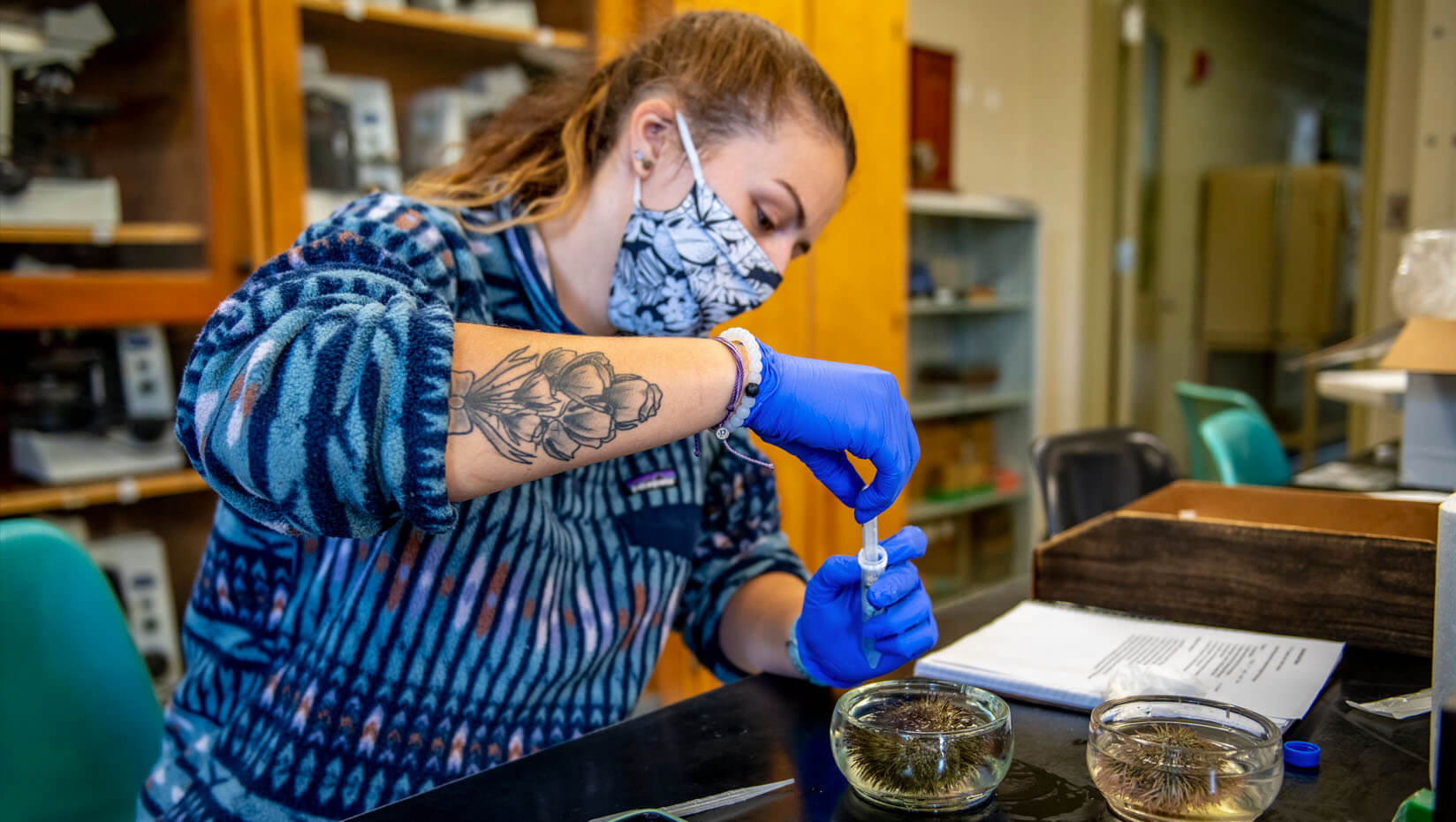
Developmental Biology students choose their adventure
Like playing a “Choose Your Own Adventure” game, students in BIO 336 — Developmental Biology this fall have options for completing the course, providing both flexibility and social distancing to adapt to COVID-19.
Jared Talbot, assistant professor of developmental biology, will still require every student to read their textbooks, write thought-prompts, take quizzes and conduct experiments. This year, they also will have more choice in how they meet the course objectives, and not just by deciding whether to attend lab and lecture in-person or online.
The three multipart labs in Developmental Biology will feature a variety of experiments, and student groups can choose which ones to complete. Talbot says he crafted his experiments in part by using protocols developed by UMaine professor emeritus Mary Tyler and University of South Carolina professor April DeLaurier. By allowing groups to select which experiments to pursue, Talbot says the lab portion of the course can accommodate for students’ varying schedules.
For example, every student must complete the initial experiment in the first lab, which involves injecting sea urchins with potassium chloride and placing the eggs and sperm they produce in petri dishes to monitor fertilization and cell division. Each group will then choose two out of the six follow-up experiments to pursue. One group will investigate rates of egg fertilization based on sperm distance, another will initiate cell division in unfertilized eggs, and the third will investigate the disruption of gastrulation by adding lithium chloride to the seawater.
“At the end, they’re all going to hear each other’s stories about what they learned from the experiments so they can augment one another’s experience,” Talbot says.
Multiple students from each group will work on the experiment in-person while others participate remotely through Zoom. Talbot says each group will produce a collective report, which describes the findings, discusses what they learned, and outlines the contributions by each team member.
The lecture portion of Developmental Biology also will feature a choice component. In lieu of mid-term and final exams, Talbot will task students with crafting and presenting three narratives about different development processes. Each student will choose a process not covered in course curricula, but still relates to its key themes, to research, create a narrative about and teach to the class. Students will be able to deliver their presentations remotely or in-person.
“If these oral presentations go well, I would like to keep these presentations as part of the course even after the COVID-19 pandemic, because I think the students will enjoy them,” Talbot says.
The assistant professor plans to host live lectures in-person and through Zoom, while also recording them so students can view them through Brightspace on their own time. Offering multiple options for lecture participation accommodates for each students’ schedule and ability to access campus based on where they live and their health.
“I want to help them to stay safe while we work together in this pandemic,” he says.
Contact: Marcus Wolf, 207.581.3721; marcus.wolf@maine.edu
